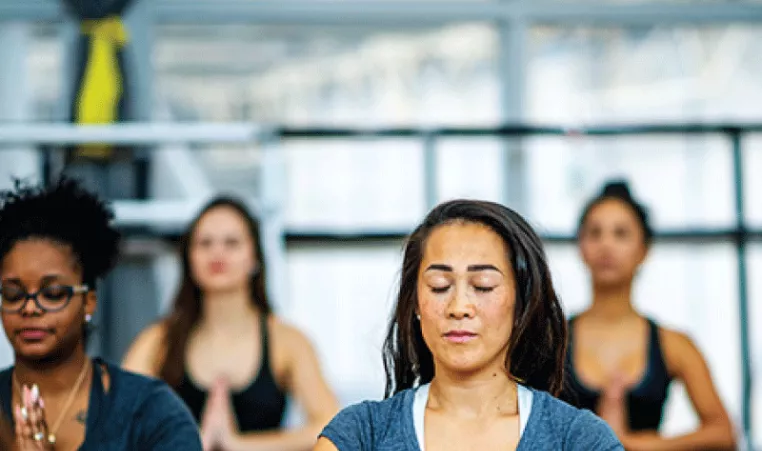
The YMCA of the Central Kentucky, a leading nonprofit dedicated to strengthening communities through youth development, healthy living and social responsibility, offers mindfulness tips and techniques to help people of all ages decrease stress, reduce anxiety, develop emotional and social intelligence, strengthen intuition and build a greater peace of mind.
Research indicates that mindfulness helps people suffering from stress, pain, trauma, and emotional, mental and social imbalances such as anxiety, depression, ADHD, irritable bowel syndrome and more. The Y teaches how mindfulness is a self-care practice that allows a person to transform how the mind reacts or relates to the world.
10 Mindfulness Tips and Techniques
There are many ways to bring mindfulness into a person’s life and these tips help provide some ideas:
- Create a Mindful Corner for home, work or school that can include: Mindful Glitter Jar, Chime, Coloring, Hoberman Sphere, music (rain sticks and drums), heavy blankets (for weight), eye masks, essential oils, etc.
- Download a mindfulness app such as Insight Timer, Headspace, Calm
- Create a bed-time routine
- Turn off screens one hour before bed
- Use a hot water bottle or weighted blanket to calm the nervous system
- Align day with the circadian rhythms
- Use an essential oil diffuser to hydrate the air
- Take 1-minute brain-breaks throughout the day
- Manage energy, not time
- Eat mindfully at meal time by sitting down, chewing the food slowly and enjoying the sight, smell, texture and taste of the food
- Take a mindful walk in nature and pay attention to the sights, sounds and smells of being in the great outdoors in fresh air
- Participate in a yoga class where you will focus on breathing
- Focus On One Thing At A Time. Studies have found that tasks take 50% longer with 50% more errors when multi-tasking, so consider “uni-tasking”, with breaks in between, whenever possible.
- Keep a daily journal. Start your morning with writing or wind up the day on the page. Focus on sensory details. Or write about your life as a passive observer. This will help limit judgement as you check in with your emotions and thoughts on the page. It can also help with awareness of emotions.